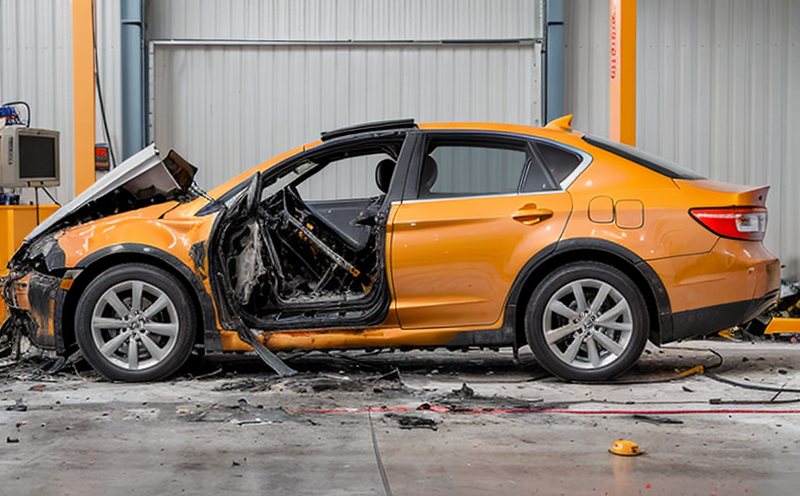ANSI C18.2M Mechanical Shock Testing of Portable Secondary Batteries
The ANSI C18.2M standard is a critical requirement for manufacturers and suppliers involved in the production and certification of portable secondary batteries such as lithium-ion (Li-ion) cells, battery packs, and modules used in consumer electronics, medical devices, and automotive applications. This testing ensures that these batteries can withstand mechanical shocks without compromising their performance or safety.
According to ANSI C18.2M, the mechanical shock test is designed to simulate real-world conditions where portable secondary batteries may experience sudden impacts during use or transport. The test aims to verify the structural integrity and electrical stability of the battery under specified shock loads. This is crucial for ensuring product reliability, safety compliance, and market acceptance.
The testing procedure involves applying controlled mechanical shocks to the battery using a specialized testing machine that can generate high-velocity impacts. The specimen preparation includes charging the battery according to the manufacturer's guidelines and placing it in a standardized position within the test fixture. The test parameters include shock levels, durations, and angles of impact, all specified by ANSI C18.2M.
The data collected during the test is used to assess whether the battery meets the acceptance criteria defined in the standard. These criteria typically involve monitoring electrical performance metrics such as open-circuit voltage (OCV), internal resistance, and capacity before and after the shock event. The testing apparatus must also meet specific accuracy requirements outlined in ANSI C18.2M.
Understanding the real-world implications of this test is essential for quality managers, compliance officers, R&D engineers, and procurement professionals involved in product development and certification processes. By adhering to ANSI C18.2M, manufacturers can ensure their products meet stringent safety standards and are reliable under harsh conditions.
The test setup typically involves a robust mechanical shock testing machine capable of delivering controlled impacts at specified energy levels. The specimen is placed on the testing platform in accordance with the standard's specifications. The machine then applies the shocks using predefined parameters, which can vary based on the battery type and its intended application.
Upon completion of the test, detailed reports are generated that document the pre-test and post-test performance metrics. These reports serve as evidence of compliance with ANSI C18.2M and provide insights into the battery's resilience to mechanical shocks. This information is invaluable for R&D teams in refining product designs and improving safety features.
The ANSI C18.2M standard ensures that portable secondary batteries are robust enough to withstand potential impacts during use or transport, thereby enhancing overall product reliability. Compliance with this standard not only satisfies regulatory requirements but also builds trust among consumers and stakeholders by demonstrating a commitment to quality and safety.
- International Acceptance: ANSI C18.2M is widely recognized in North America and has been adopted by several international standards organizations, including the International Electrotechnical Commission (IEC).
- Market Impact: Meeting the requirements of ANSI C18.2M can significantly enhance a company's market position by ensuring that its products meet stringent safety and performance criteria.





